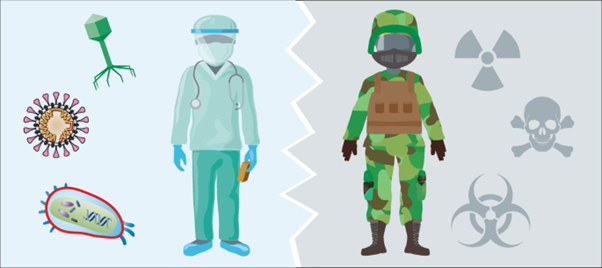The Covid-pandemic has demonstrated that we need to be ready for rapidly spreading threats, like a new biohazard, but also pollutants, or toxins. This is especially important for the front-line workers exposed to the threat, like doctors and nurses, and other first responders. In a paper published in Nature Reviews Chemistry, ICC researchers review the development of special active coatings for fabrics and exposed surfaces, that can help to disable the threat. They find that metal and metal-oxide-based catalysts can be used to deactivate pathogens, and metal organic frameworks in textiles can possibly degrade chemical warfare agents. The active fabrics developed can hopefully make frontline response a little safer. First author Christia Jabbour is a PhD student at ICC.
The paper: Chemical targets to deactivate biological and chemical toxins using surfaces and fabrics, by Christia Jabbour, Luke Parker, Eline Hutter and Bert Weckhuysen, Nature Reviews Chemistry (2021), https://www.nature.com/articles/s41570-021-00275-4

